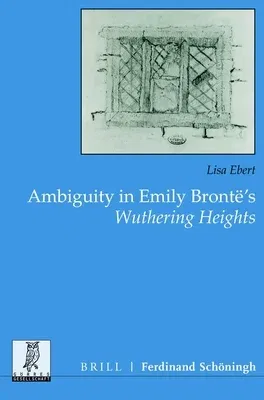Lisa Ebert
(Author)Ambiguity in Emily Brontë's Wuthering HeightsPaperback, 4 September 2020

Qty
1
Turbo
Ships in 2 - 3 days
In Stock
Free Delivery
Cash on Delivery
15 Days
Free Returns
Secure Checkout

Part of Series
Beiträge Zur Englischen Und Amerikanischen Literatur
Print Length
296 pages
Language
English
Publisher
Brill Schoningh
Date Published
4 Sep 2020
ISBN-10
3506704958
ISBN-13
9783506704955
Description
Product Details
Author:
Book Format:
Paperback
Country of Origin:
US
Date Published:
4 September 2020
ISBN-10:
3506704958
ISBN-13:
9783506704955
Language:
English
Location:
Paderborn
Pages:
296
Publisher:
Weight:
449.06 gm